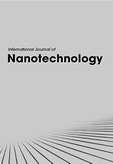Effect of lithium salt on the properties of PEO based hybrid solid electrolyte for high safety lithium-ion batteries
- Journal
- International Journal of Nanotechnology
- Vol
- 15
- Page
- 620-629
- Year
- 2018
This study firstly reports the properties of a gum-like ceramic-polymer composite electrolyte with different lithium salts, consisting of Li1.3Ti1.7Al0.3(PO4)3 (LTAPO) ceramic powder, poly(ethylene oxide) (PEO) polymer and lithium salts. LiCl, LiClO4, and LiClO4∙3H2O are employed as lithium-ion salts to investigate the influence of lithium salt on the gum-like hybrid electrolyte. The morphologies and particle size distribution of the LTAPO ceramic particle are analysed by using a scanning electron microscopy (SEM) and laser particle size analyser. Their crystalline is measured by means of X-ray diffraction (XRD). The influence of the lithium salt on the ionic conductivity is observed by using electrochemical impedance spectroscopy (EIS). The ionic conductivities of the gum-like hybrid electrolyte with different lithium salts are 8.39 × 10-5, 9.88 × 10-5 and 6.95 × 10-5 S/cm for LiCl, LiClO4, and LiClO4∙3H2O, respectively. The highest specific capacity is achieved for LiClO4 exhibiting a charge capacity of 93 mAh/g and a discharge capacity of 85 mAh/g. Moreover, the hybrid electrolyte with LiClO4 exhibits higher electrochemical properties. It is shown that the properties of the gum-like hybrid electrolytes were affected by the choice of the Li salt.

